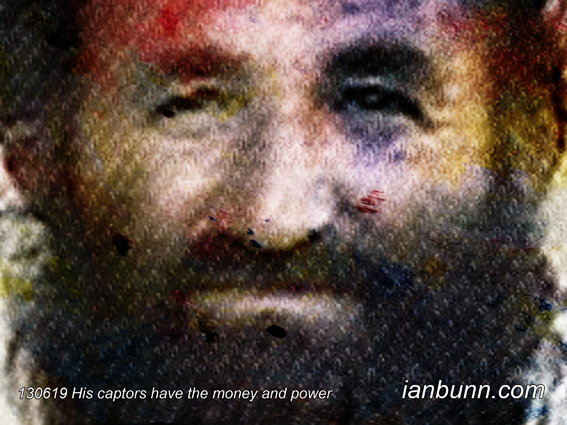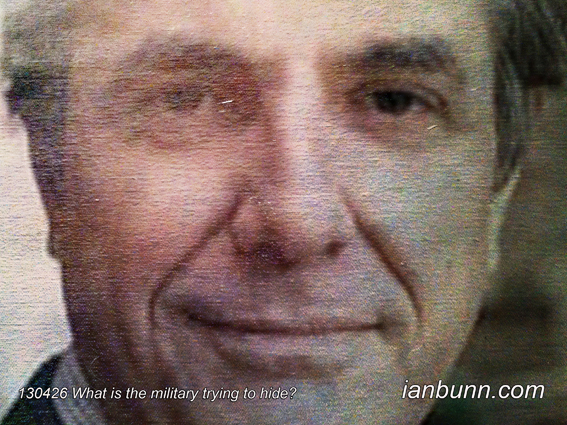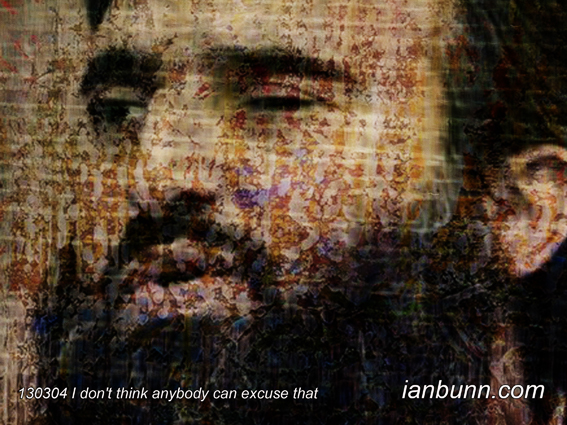 His captors have the money and power (June 19 2013)
His captors have the money and power (June 19 2013)
Abdul Ghani the 41 year old Afghanistani detainee currently held in the US Guantanamo Bay detention camp in Cuba, has been featured in an article by Lt Col Barry Wingard published in Close Guantanamo titled ‘Why Not Release Abdul Ghani?’. Wingard states “…Abdul Ghani, a man by all accounts guilty of nothing more than mistaken identity and kept ten years without trial for having a common name and being in the wrong place at the wrong time? …Before his capture, Abdul farmed and hustled to make ends meet by harvesting pomengranates and collecting metal for resale in the local markets. All of the villagers in Khoshab are anxious for Abdul Ghani’s return. He continues to maintain a good reputation, and the villagers support his release and would support him in becoming reintegrated into his former profession as a farmer. He intends to once again become a valued member of the local village community, and will remain under the supervision of his brothers and village elders. His fiancée, a lady who has patiently waited for him through all these years is even more anxious for the day Abdul Ghani returns and they are able to begin their lives together anew. Abdul Ghani is nothing more than a hard working farmer and active member of his local village. For ten years, that simple lifestyle has been disrupted unnecessarily, and the time has long since passed for his return home. He has patiently waited for his release while maintaining his Afghan honor, and is ready to return to an active life of community involvement and farming his lands. Essentially, he is eager to reclaim the life that has been taken from him during all these years of captivity…his captors may have the money and power, but we have the truth.”
Inspired by Barry Wingard, CloseGuantanamo ow.ly/lDZEc Image source CloseGuantanamo ow.ly/lDZe3


![Fawzi [Fouzi] Khaled Abdullah Fahad Al Odah the 35 year old Kuwaiti citizen and teacher held in the US Guantanamo Bay detainment camp in Cuba for the past 11 years without charge has been featured in the New York Times. Fawzi traveled to the Pakistan/Afghanistan border area in order to undertake charitable outreach work. Following the September 11, 2001 attacks, Fawzi fled Afghanistan, intending to return home to Kuwait, however having crossed the border into Pakistan he was captured by Pakistani bounty hunters who handed him along with eleven other Kuwaitis over to American authorities. The Kuwait Freedom Project established to seek the release of Fawzi and other Kuwaiti detainee’s reports that Fawzi spent his summers traveling in poor nations to educate less fortunate students, and along with his family have built libraries and wells in Africa. They’ve sponsored orphans in countries including Albania. Fawzi has not had any weapons training or experience, writing to his parents in 2002 stating, “Now I am detained by the American forces and investigations are still going on…I will be established as innocent soon, and then I will return back to you…” Fawzi’s father, Khalid Al-Odah, is the head of the Kuwaiti Family Committee, an organization formed by relatives of the detainees to advocate for their just treatment under the U.S. judicial system. The elder Al-Odah is a former member of the Kuwaiti Air Force, who trained with American servicemen in the United States and flew missions with them as an ally in the Persian Gulf War of 1991. … The U.S. Government contends that Fawzi’s true purpose in Afghanistan was to join the Taliban and al Qaeda referring to "additional incriminating evidence" discovered since his capture, however the nature of that evidence is redacted in the unclassified version…” Inspired by Project Kuwaiti Freedom ow.ly/hMvRJ Image source Wikipedia ow.ly/hMvQa](http://www.ianbunn.com/wp-content/uploads/2013/02/130226dcU60.jpg)